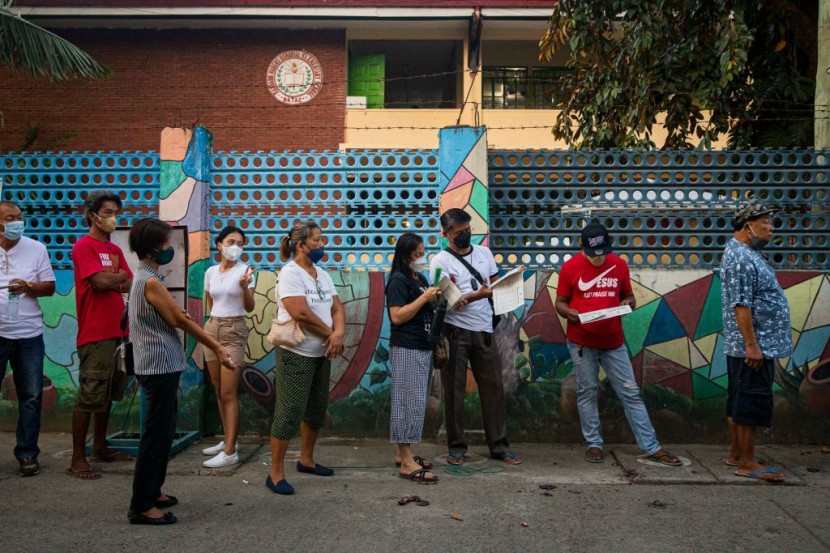
Approximately 67 million registered voters in the Philippines march to polling precincts to cast their ballots to elect the country's next president amid the various issues that emerged on election day.
Aside from the presidency, the elections will see over 18,000 government positions up for grabs, including half of the 24-member Senate, over 300 seats in the House of Representatives, and provincial and local offices across the archipelago of over 109 million Filipinos.
The top two contenders vying for the Philippine presidency are Ferdinand Marcos, Jr, the 64-year-old son of the late dictator, a former provincial governor, congressman, and senator; and Vice President Leni Robredo, a human rights advocate, former congress representative. She defeated Marcos Jr. in the 2016 vice presidential race.
Thousands of counting equipment across the country will send unofficial results to be tallied after voting centers close. A preliminary, unofficial count could reveal a clear winner in a matter of hours, but a close race could take longer. According to AP News, it could take weeks for Congress to complete an official count and canvass.
Malfunctioning Voting Machines
However, there were reports of voting machines having technical problems, power outages, and other issues during the nationwide elections, as per ABS-CBN News.
During the countrywide polls, however, there were allegations of voting machines experiencing technical problems, power outages, and other challenges.
Atty. Barry Gutierrez, the spokesman for Vice President Leni Robredo, has been in line to vote at a precinct on the UP Campus since 5:30 a.m. Yet, due to malfunctioning machines, they were unable to vote immediately.
Polls in a precinct in Bauan Technical Highschool in the town of Bauan, Batangas, were also delayed for two hours due to a malfunctioning VCM in the province of Batangas.
Due to problems with electricity in multiple polling places and tardy poll watchers, polls in Sagonsongan, Marawi, did not open on time.
The voting process for the people affected by the 2017 Marawi siege, which was supposed to begin at 6 a.m., was over an hour late.
Other locations with reported broken voting machines include the province of Pangasinan and the city of Malabon.
Commission on Elections Commissioner George Garcia reported that Some 1,867 vote-counting machines experienced technical problems during the early voting hours. The incidents occurred despite the majority of the machines hurdling the final testing and sealing.
As of 11 a.m., Garcia said 51 defective VCMs and 102 SD cards were replaced. There were some 896 calls for VCM issues, but these were not confirmed defective, he added.
According to the commission, there is a one-hour extension designed to compensate for longer lines caused by social distance and other coronavirus measures.
Gun Attack Leaves 3 Dead
Meanwhile, the Philippine military reported Monday that three individuals were killed in a gun shooting incident in Buluan, Maguindanao, during the holding of the 2022 national and local elections, per a GMA News report.
According to an initial report received by the 16th Military Intelligence Company, the incident occurred at about 7:25 a.m. when members of the Barangay Peacekeeping Action Team (BPAT) on duty at the Pilot Elementary School were strafed by occupants of two white vans.
The attack killed BPAT members Misuary Dimapalao, Sajid Kamama, and Tata Bulilo.
One BPAT member, on the other hand, was wounded in the incident. He was identified as Jadid Ulangkaya.
The culprits fled the crime scene, according to the army, and all of their victims were supporters of Buluan Mayoral contender Babydats Mangudadatu.
Given the long-standing threats presented by communist and Muslim insurgents, as well as a history of frequently brutal family and political disputes in rural areas, tens of thousands of police and military men have been deployed.
In a horrific attack on an election caravan in 2009, gunmen sent by the family of southern Maguindanao province's then-governor slaughtered 58 people, including 32 journalists.
Related Article : Manny Pacquiao as President of the Philippines? Legendary Boxer Vows to Knock Out Abusive Government








